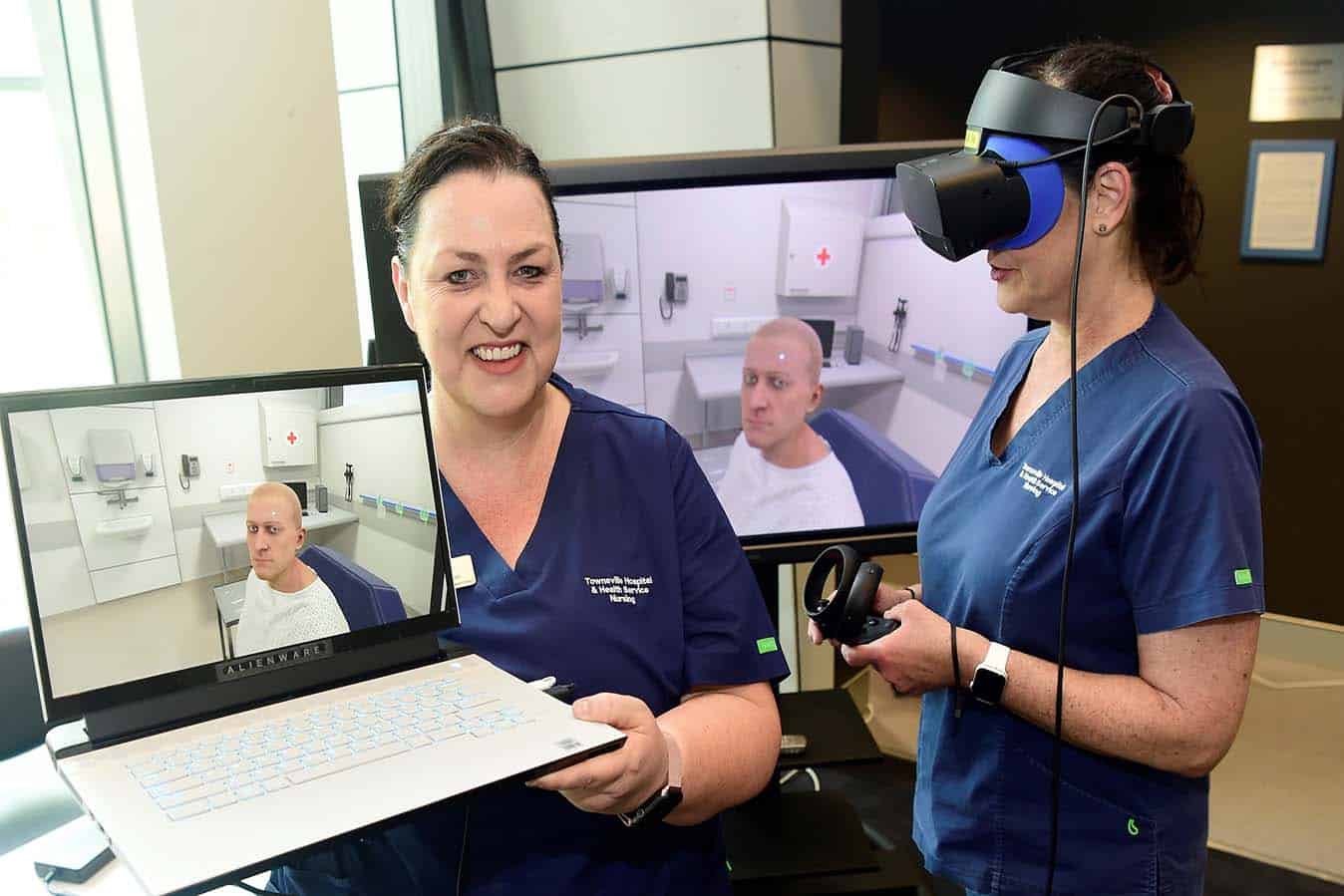Townsville Hospital and Health Service (THHS) and The Clinical Skills Development Service are interested in investigating virtual reality, a novel and highly immersive technology, as it promises to address potential infection risks associated with close proximity that have come about during the Covid-19 pandemic.
Recently THHS participated in The Oxford Medical Simulation Virtual reality trial, the first trial of its kind in Queensland. The project was delivered over three months to February 2021. Approximately 150 nurses, midwives and medical staff participated in the various scenarios chosen for the trial. Both Townsville Hospital and Health Service and The Clinical Simulation Development Service are interested in evaluating technology that provides a scalable solution to rural and remote education.
The Oxford Medical Simulation software delivers clinical scenarios that give the learners the benefits of traditional simulation in virtual reality. This allows learners to practice more, learn from their mistakes, and improve patient care.
Using Oculus headsets, learners were immersed in a high-fidelity simulated virtual reality environment with acutely unwell patients in true-to-life clinical scenarios. The environment, patient and other team members are fully interactive, with conversation and physiology adapting to actions and treatment. Learners manage the patient as in real life: assessing, instigating treatment and interacting with their interdisciplinary team against the clock. The environment, patient and other team members are fully interactive, with artificial intelligence-driven patient behaviour, adaptive conversation, and dynamic physiology.
The learner makes a diagnosis, performs, and interprets investigations, treats the patient and manages their team under pressure scenarios. Users then receive personalised feedback guided reflection and performance metrics.
The scenarios include pharmaceutical modelling and dynamic physiology that is clinically accurate and provides a realistic, authentic experience. Immediate constructive feedback consolidates knowledge, while gamification encourages repetition to improve performance.
We are looking forward to providing opportunistic learnings for staff finding it difficult to leave ward areas to attend training.
Authors:
Catherine Betcher is Nurse Educator, Clinical Education and Simulation Services at Townsville Hospital and Health Service Qld
Luke Wainwright is Nurse Educator, Clinical Skills Development Service at Royal Brisbane and Women’s Hospital Qld








